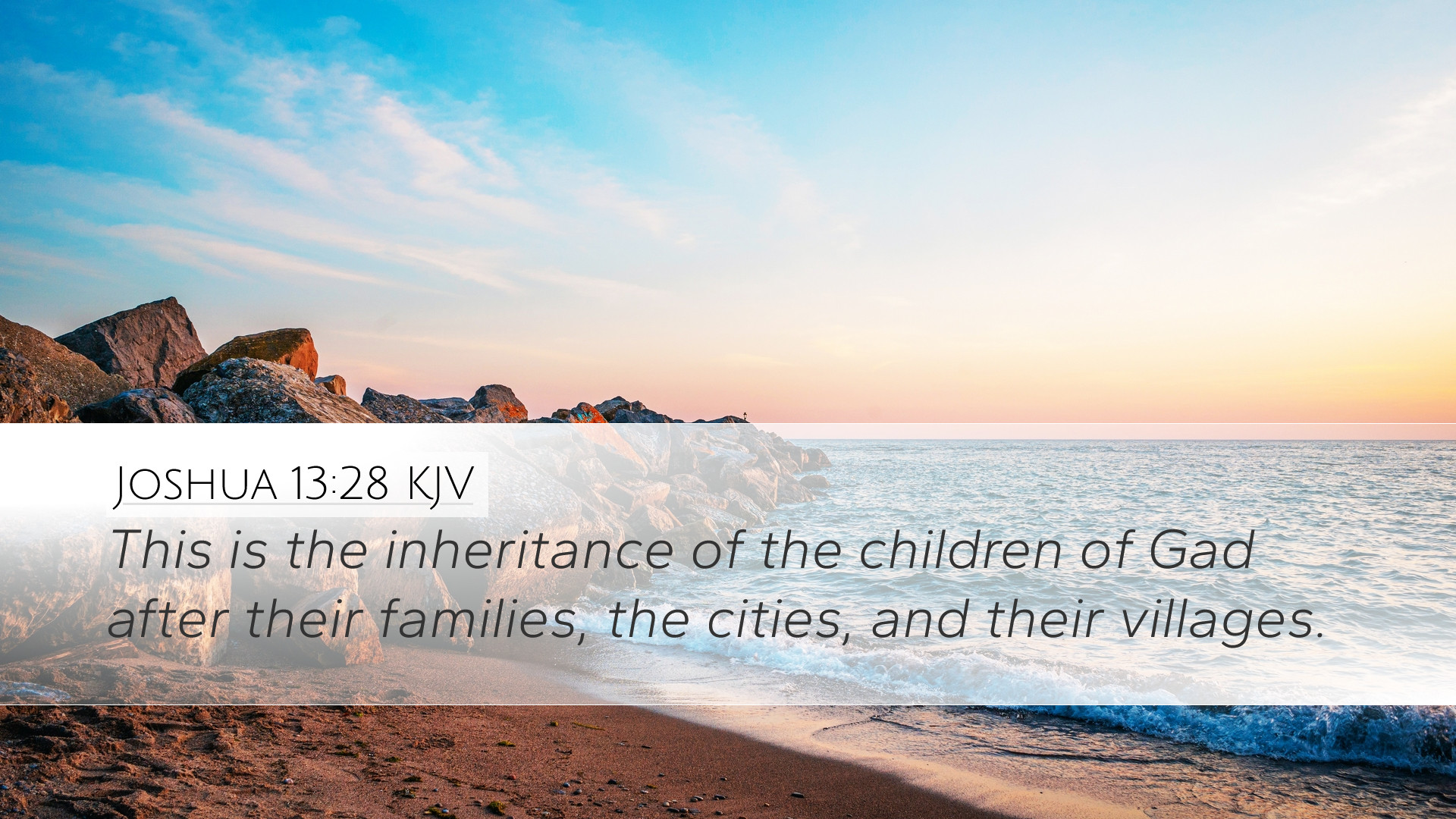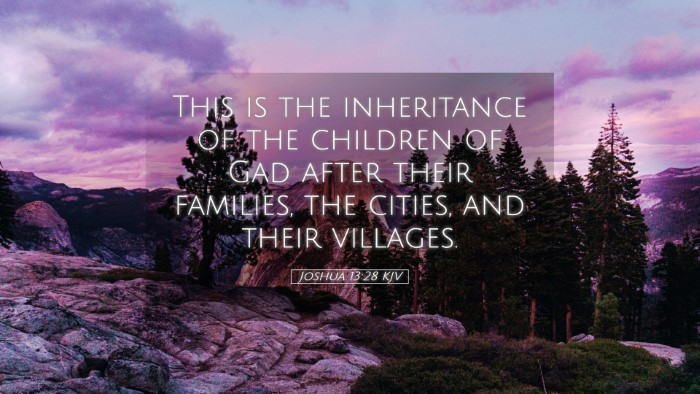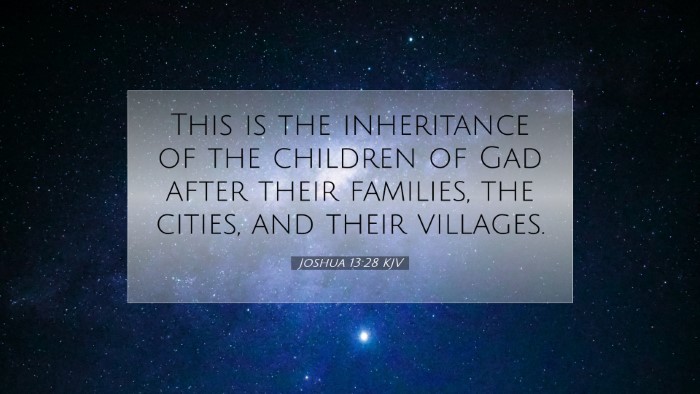Commentary on Joshua 13:28
Verse Context: “This is the inheritance of the children of Israel which they inherited in the land of Canaan, which Eleazar the priest and Joshua the son of Nun and the heads of the fathers of the tribes of the children of Israel distributed to them.” (Joshua 13:28)
Introduction
The book of Joshua marks a significant transition for the Israelites as they claim their promised inheritance in the land of Canaan. Joshua 13:28 falls within a section detailing the allocation of this land to the various tribes. This verse encapsulates the conclusion of the distribution of land and highlights the roles of key figures in this pivotal moment in Israel's history.
Commentary Insights
1. The Role of Leadership
Matthew Henry notes that leadership comprises not just authority but responsibility. In this distribution, we see Eleazar the priest and Joshua the son of Nun taking central roles. Their leadership is characterized by an adherence to divine direction, ensuring that the allocation reflects God's will. This emphasizes the importance of godly leadership in guiding communities toward realizing God’s promises.
2. Divine Governance
Albert Barnes points out that the inheritance of the land was not left to human whim but was divinely ordered. The allocation was made under the sovereign direction of God through chosen leaders, illustrating the principle that God oversees the administration of justice and fairness among His people. This invites reflection on how contemporary leaders align their decisions with God’s purposes.
3. The Significance of Inheritance
Adam Clarke elaborates on the concept of inheritance, asserting that it is not merely a physical property but also a spiritual legacy. The land of Canaan represents the fulfillment of God's promises and the establishment of identity for Israel. This inheritance serves as a type foreshadowing the greater inheritance believers hold in Christ, making it vital for modern readers to understand their spiritual inheritance and the responsibilities that come with it.
4. The Unity of the Tribes
The verse reflects a moment of unity among the tribes. The careful distribution of land signifies God’s desire for His people to live harmoniously within the inheritance He provides. Matthew Henry emphasizes that such unity fosters communal strength and resilience faced with external challenges and highlights the essential nature of community among God’s people today.
Theological Implications
1. God’s Faithfulness
As the Israelites receive their inheritance, it serves as a testament to God's faithfulness. He had promised the land to their ancestors, and now, through Joshua and Eleazar, that promise has come to fruition. This moment invites believers to trust in God’s continued faithfulness in their own lives, knowing that He keeps His promises.
2. The Call to Responsibility
With inheritance comes responsibility. The tribes of Israel were not to possess the land merely for themselves; instead, they were called to be stewards of God’s provision. This resonates deeply with today’s church, as believers are called to manage and cultivate the gifts and resources given to them for the glory of God and the benefit of others.
3. Anti-Individualism
In a time when individualism is celebrated, the distribution of land among the tribes serves as a reminder that God’s plan encompasses community. This collective identity among the tribes is a reflection of the body of Christ today, where each member plays a vital role in the overall health and mission of the church.
Conclusion
The allocation of the land in Joshua 13:28 holds rich significance for theology and pastoral practice. The roles of Eleazar and Joshua remind us of godly leadership, while the emphasis on unity among the tribes calls for cooperation and collective responsibility. Furthermore, understanding our spiritual inheritance in light of this passage can deepen the faith of believers, encouraging them to manifest God's promises in their lives and communities. As today’s spiritual leaders reflect on these truths, they can guide their congregations toward fulfilling the responsibilities that come with the blessings of God’s inheritance.


